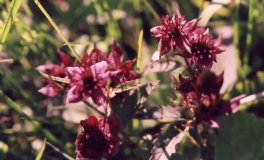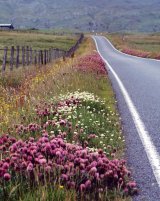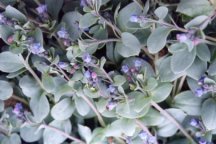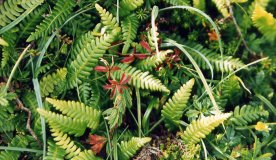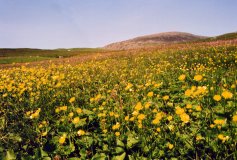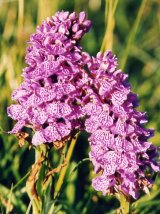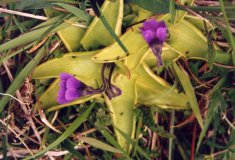Hillswick
Eshaness Area Regeneration and Development
It is not magnificent scenery alone, which makes this area
so appealing.
Once spring arrives, the landscape bursts into colour, with
native wildflowers growing everywhere. Common flowers and the not so common
plants, which can be seen all over Shetland, flourish here.
You only need to drive along the road and look at the verges
to appreciate the wealth of flora this area has.
A
profusion of beautiful flowers have a chance to seed and flourish in hay parks
that are a riot of colour with plants such as vetches, hawkbits, scabious, eyebright
and buttercups and where the ground is wet or in roadside ditches there are
bog asphodel, monkey flower, marsh marigold and yellow iris.
Northmavineís rare plants tend to be thought of as being mostly
on Ronas Hill, where 15 rare plants are recorded.
However, within HEARDís area you will find 17 equally rare
species some of them having no other recorded sites in Shetland.
The
most obvious ones are the oyster plant, the hazel and the club rush site, but
there are others including hawkweeds, a few grass types as well as some aquatic.
The
cliff faces have hardy, salt tolerant plants like thrift, roseroot and scurvy
grass growing happily, while along the cliff top, a carpet of colour includes
moss and red campion, kidney vetch, spring squill and birdís foot trefoil.
Among
other plants relishing damp conditions are the butterwort and sundew, both supplement
their diet by eating insects. In late summer the hills are tinged a pinkish
purple with flowering heather, but in the spring and summer the peat hill and
bog areas bear tormentil, milkwort, clumps of thyme and the heath-spotted orchid.
Several kinds of orchid grow in this area and the colour range is impressive.


